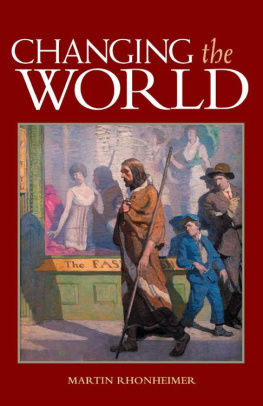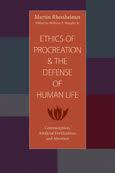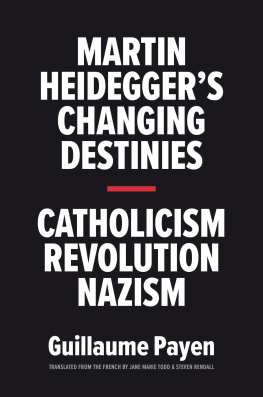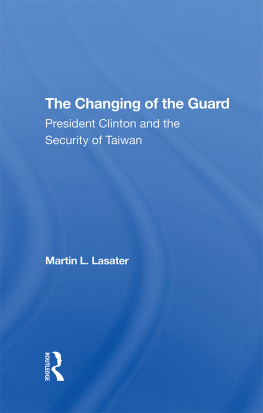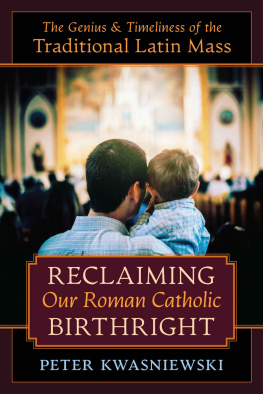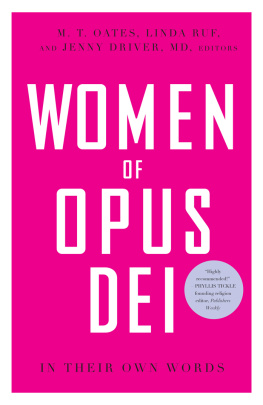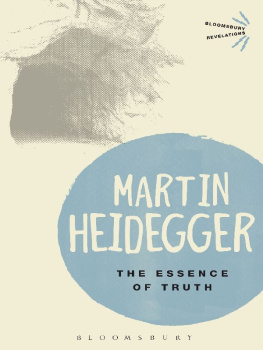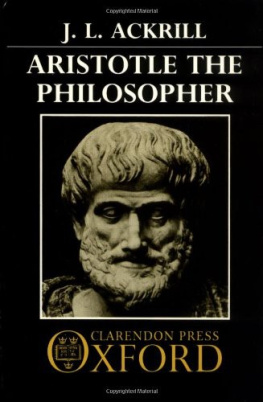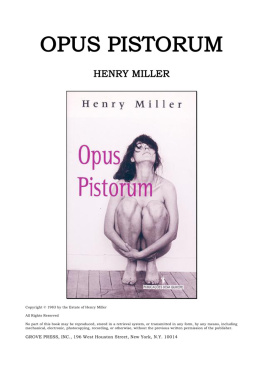Martin Rhonheimer - Changing the World: The Timeliness of Opus Dei
Here you can read online Martin Rhonheimer - Changing the World: The Timeliness of Opus Dei full text of the book (entire story) in english for free. Download pdf and epub, get meaning, cover and reviews about this ebook. year: 2009, publisher: Scepter Publishers, genre: Religion. Description of the work, (preface) as well as reviews are available. Best literature library LitArk.com created for fans of good reading and offers a wide selection of genres:
Romance novel
Science fiction
Adventure
Detective
Science
History
Home and family
Prose
Art
Politics
Computer
Non-fiction
Religion
Business
Children
Humor
Choose a favorite category and find really read worthwhile books. Enjoy immersion in the world of imagination, feel the emotions of the characters or learn something new for yourself, make an fascinating discovery.
- Book:Changing the World: The Timeliness of Opus Dei
- Author:
- Publisher:Scepter Publishers
- Genre:
- Year:2009
- Rating:5 / 5
- Favourites:Add to favourites
- Your mark:
- 100
- 1
- 2
- 3
- 4
- 5
Changing the World: The Timeliness of Opus Dei: summary, description and annotation
We offer to read an annotation, description, summary or preface (depends on what the author of the book "Changing the World: The Timeliness of Opus Dei" wrote himself). If you haven't found the necessary information about the book — write in the comments, we will try to find it.
Martin Rhonheimer: author's other books
Who wrote Changing the World: The Timeliness of Opus Dei? Find out the surname, the name of the author of the book and a list of all author's works by series.
Changing the World: The Timeliness of Opus Dei — read online for free the complete book (whole text) full work
Below is the text of the book, divided by pages. System saving the place of the last page read, allows you to conveniently read the book "Changing the World: The Timeliness of Opus Dei" online for free, without having to search again every time where you left off. Put a bookmark, and you can go to the page where you finished reading at any time.
Font size:
Interval:
Bookmark:
CHANGING the
WORLD
The Timeliness of Opus Dei
MartinRhonheimer
Copyright 2009, Martin Rhonheimer
The total orpartial reproduction of this book is not permitted, nor its informatictreatment, or the transmission of any form or by any means, either electronic,mechanic, photocopy or other methods, without the prior written permission ofthe owners of the copyright.
This translation Scepter Publishers,translated by Bernard Browne
Copyright 2009, Scepter Publishers, Inc. P.O. Box 211 , New York , N.Y. 10018 www.scepterpublishers.org
ISBN-13: 978-1-59417-068-3
Copyright 2006, Adamas Verlag, Verwandlung der Welt: ZurAktualitt des Opus Dei, Cologne
CONTENTS
FOREWORD
The essaysassembled in this volume are the fruit of personal reflection about a realitywith which the author has been personally acquainted for more than thirtyyears. Indeed it is part of his life and identity. But although he has been amember of Opus Dei for quite sometimefirst as a layman and since 1983 as apriestthe spirit and pastoral mission of this institution of the CatholicChurch still make intellectual demands on him, as should be clear from theseessays.
Asthe fruit of personal argumentation, the essays offer points of departure for atheological, philosophical, and historical presentation and analysis of whatstill is, after all, a novel and sometimes misunderstood spiritual and pastoralphenomenon. At the heart of these pages one will not find the institutional ororganizational aspects of Opus Dei, but its specific spiritual and pastoralcontours.
Theessays do not pretend to be a learned or academic treatise, even though some dopoint to rather complex theological and historical implications. The authorhopes he has succeeded in expressing himself in a generally understandable way.For details and further research the reader can consult the bibliographicalmaterial cited.
Tosome extent the subjects of the essays overlap. The second, until nowunpublished, "Affirming the World and Christian Holiness,"complements the first. This latter appeared in 2002 under the title"Blessed Josemara and love for the world." It was part of a commemorativepublication edited by Msgr. Cesar Ortiz entitled Josemara EscrivProfile einerGrndergestalt published by Adamas Verlag on the hundredth anniversaryof the birth of the founder of Opus Dei.
Thefourth essay, "Truth and Politics in Christian Society," offers adeeper continuation of the third essay, "The New Evangelization andPolitical Culture." It seeks to situate Opus Dei in the history of theChristian understanding of freedom as related to the reality of modern societyand political pluralism. The texts of the essays have, where necessary, beenupdated and linked to one another editorially.
Changing the World is basically concerned with theideal of Christian holiness in the midst of the world. For it is in the contextof ordinary life's greatness and value, seen in the light of faith and thegrace of divine filiation, that a frequently overlooked insightnamely, thatthe Church and the work of salvation carried out through her are for thedeliverance and renewal of creation in Jesus Christfinally is grasped andrealized where people live and work.
OpusDei is not a community or a group within the Church intended to gather togetherpeople who think alike in a refuge for pious contemplation, a hothouse isolatedfrom the bustle of this world. It sees itself rather as an instrument ofservice to individual dioceses and a harmonious supplement to normal pastoralcarea pastoral instrument of the universal Church.
Asa personal prelature, Opus Dei is a part of the Church's hierarchicalstructure. Its purpose is to recall what had almost been forgotten in thecourse of centuries: All of the faithful, wherever they live and work, arecalled on the basis of their baptism to the fullness of life in Christ, toholiness and apostolate, and therefore to full responsibility for the onesingle mission of the Church.
Theformational program of the Prelature of Opus Dei is adapted according to thespecific needs of individuals and never excludes anyone on social, ethnic,political, or religious grounds. Its founder, Josemara Escriv, who wascanonized in 2002, called itthe "great catechesis." It is directedto the ordinary citizens of the world, to women and men of every social class,profession, and agein order to help them understand, their lives and everydayoccupations: as part of their Christian vocation, that includes jobs,marriages, families, studies, social and political activities, leisure time,and whatever else they do. It helps them as true contemplative souls to seethese earthly realities not as hindrances, but, on the contrary, as paths tounity with God and fulfillment in the spirit of Christ.
Inthis way, they and their ordinary life become truly Church. The paths of theworld are transformed into paths of God and, without losing their secularityand legitimate autonomy, become channels for proclamation of the faith and atrue lay care of souls. Here is an apostolate present in all the pathways ofhuman society, carried on by people who, like the early Christians, have noother ecclesiastical mission than the one they received in being baptized andso becoming Christ's. On this basis they know themselves called to be, in thewords of St. Augustine , alter Christus , "another Christ," and as St. Josemara Escriv added,even ipse Christus, "Christhimself."
Thisspecific spiritual and pastoral charism of Opus Dei not only expresses acentral concern of the Second Vatican Council, but preceded it by severaldecades (Opus Dei began in 1928). The four essays included in this book seek topresent it from different points of view and with different emphases.
Theauthor hopes to make a small contribution to a deeper understanding ofsomething that is in many respects a thoroughly new and, just for that reason,sometimes even grotesquely misunderstood phenomenon within the Church. To besure, members of Opus Dei know themselves to be fallible men and women. St.Josemara called himself "a sinner who is madly in love with JesusChrist." But this consciousness of personal inadequacy does not excuse onefrom the responsibility of trying, with God's help and grace, to carry forwardthe spirit and charism of Opus Dei and make it fruitful for the Church and theworld.
Thebook is dedicated to the memory of the Servant of God Pope John Paul II, ofrecent memory, by whom the author had the privilege of being ordained as apriest in 1983 in Rome, and who, among other things, helped to advance OpusDei's apostolic work by establishing Opus Dei as a Personal Prelature in 1982and by beatifying its founder in 1992 and canonizing him in 2002.
CHAPTER 1
Josemara Escriv and Love for the World
THE TWOFOLD NATURE OF THE WORLD
CHRISTIAN PASSION FOR THE WORLD
On an Octoberday in the year 1967, in the midst of the campus of the University of Navarra ,still under construction, before the facade of the library building andsurrounded by bulldozers and cranes, the founder of Opus Dei, JosemaraEscriv, celebrated the Eucharist surrounded by professors, students, andadministrative personnel of the university. The university had been founded athis initiative, and was directed by members of Opus Dei. Today it counts somefifteen thousand students and faculty.
Thehomily given during this Mass was later published as Passionately Loving the World. Thistitle is a program that better than any other explains the nucleus of thespiritual message of Escriv: Christian passion for the world, a passionnourished by faith in the God who created this world out of love in order tohand it over to the men and women whom he had created in his own image, tocomplete by their activity and labor the work that the Creator himself had saidwas "very good." It is a passion that springs from belief in that Godwho, after man turned away from his Creator and was unfaithful to his originalvocation, became man himself in order to save man by giving us his own life andto appoint man as a collaborator in this work of salvation. In Christ andthrough his cleansing grace, the world can thereby return to its originalgoodness. The world is the real place and workplace of man and woman; it istheir task, to which, in both the order of creation and the order ofredemption, God has destined his beloved daughters and sons.
Next pageFont size:
Interval:
Bookmark:
Similar books «Changing the World: The Timeliness of Opus Dei»
Look at similar books to Changing the World: The Timeliness of Opus Dei. We have selected literature similar in name and meaning in the hope of providing readers with more options to find new, interesting, not yet read works.
Discussion, reviews of the book Changing the World: The Timeliness of Opus Dei and just readers' own opinions. Leave your comments, write what you think about the work, its meaning or the main characters. Specify what exactly you liked and what you didn't like, and why you think so.

